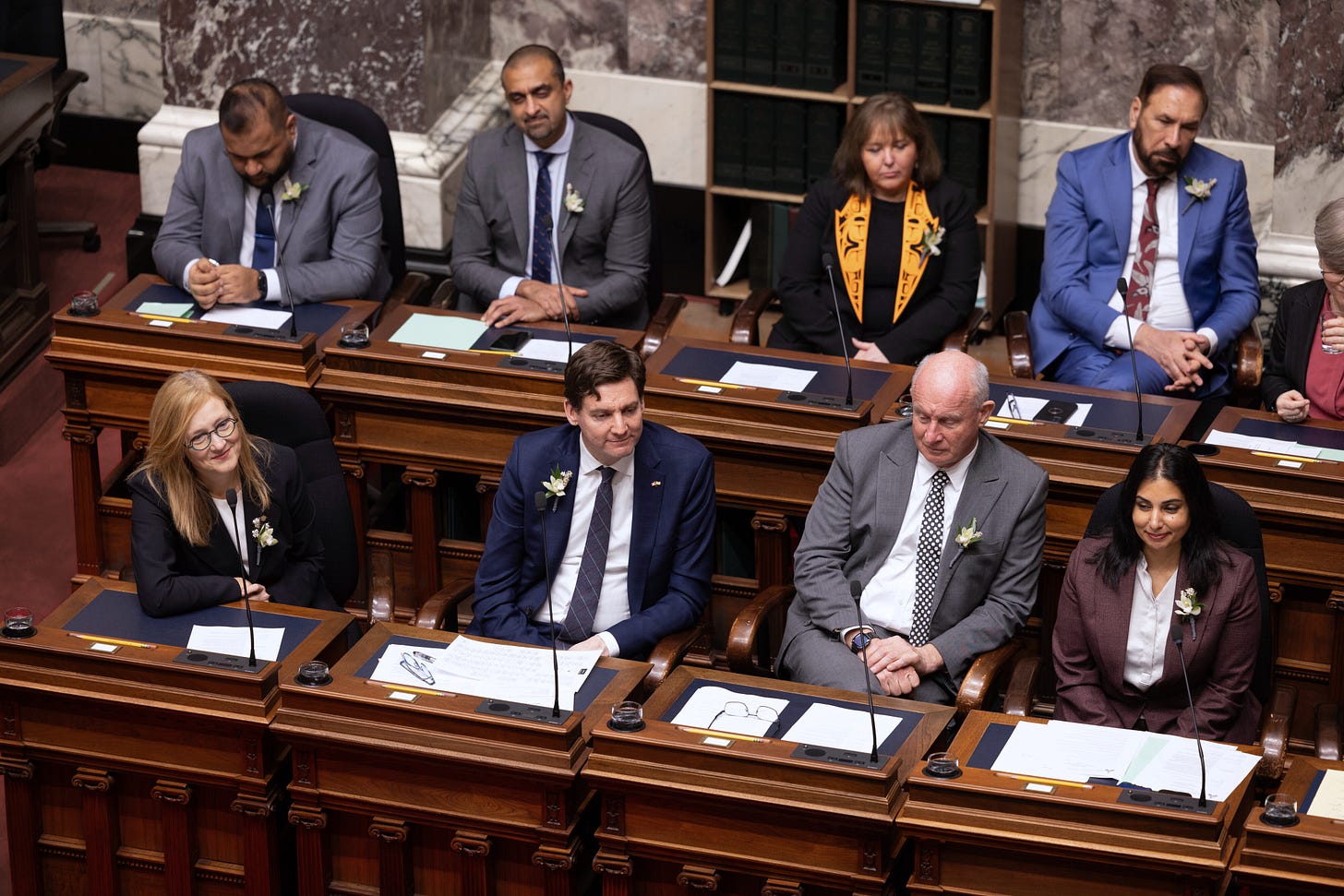Caroline Elliott: B.C. MLAs keep shutting down democracy
The repeated refusal to hear proposed laws is bad for public discourse.
It’s a well-known fact that some issues have become very difficult to discuss rationally. Perspectives have been pushed to extremes, as it feels easier to vilify opposing viewpoints than to try to understand them. The public square has been replaced by social media echo chambers that cause us to mistake our own views for the way ‘everyone’ thinks. And we’re taught to preserve emotional safety over intellectual discomfort, justifying the suppression of views that make anyone even remotely uncomfortable.
This is already a big enough problem in society generally, but it’s occurring in B.C.’s Legislative Assembly, too – the very institution designed for democratic deliberation. Recently, there’s been a disturbing tendency for our elected officials to shut down debate on certain topics before they can even be aired, as though those issues are completely off the table for any reasoned discussion at all.
There have been multiple recent cases where legislators – NDP, Green and Conservative – have refused to even hear what a proposed law entails before voting to reject it outright. They use the usual labels of ‘hatred’ and ‘racism’ to justify throwing aside parliamentary customs that have long allowed a peaceful venue for disagreement, even on difficult moral issues.
When we elect our MLAs, we’re trusting them to debate proposed laws (bills) in good faith on our behalf, and they’re explicitly tasked with exploring all arguments for and against. That’s pretty tough to do when they won’t hear what’s in a proposed law in the first place, and yet that’s what’s happening in the B.C. Legislature.
What this signals to the public is that certain contentious issues – specifically land acknowledgements, gender transition for minors and the inclusion of trans athletes in women’s sports – are non-starters for any kind of democratic discourse.
Wherever one stands on these topics, it is a simple fact that MLAs covering their ears won’t make them go away. Rather, these and other intractable matters will just get relegated to the margins of society, where reasonable, measured discussion gives way to far more polarized and emotionally-charged opinions.
Normally, proposed laws go through several stages. “First reading” is when a government or opposition MLA introduces a bill and explains its purpose. Importantly, the case for and against a bill is not considered at this time; legislators simply vote on whether to accept it for future debate. It is thus considered a formality to vote in favour at this stage.
It isn’t until ‘second reading’ that a bill’s principles and goals are discussed (in practice, most bills introduced by opposition MLAs do not actually get called forward to the second stage, even if they pass first reading). It is only from second reading onward that a vote in favour indicates approval of the substance of a bill.



